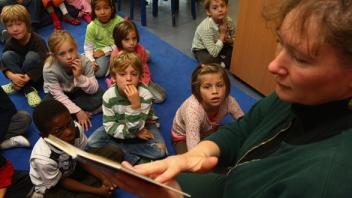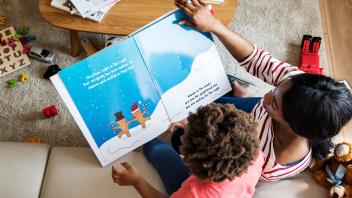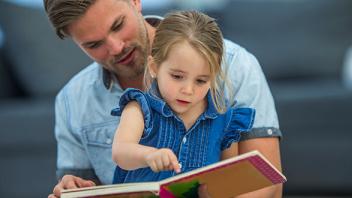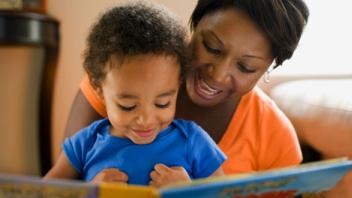Reading aloud is one of the most important things adults can do to boost literacy and social-emotional development in very young children.
Studies have shown that children who are read to regularly are more likely to develop early literacy skills, such as rhyming, letter recognition, and phonemic awareness (hearing the sounds in spoken words). These skills are essential for becoming a skilled reader and success in school. Books provide rich language experiences, and expose kids to vocabulary not used as often in everyday spoken conversation. Reading aloud also builds a young child’s knowledge about the world around them and exposes children to diverse cultures and experiences. Shared stories, combined with conversations about those stories, can help children develop social-emotional skills, such as empathy, understanding big emotions, and problem-solving.
Bringing up baby
Parents are a child’s first teachers and those early years are key to creating a strong foundation for later reading. The Reach Out and Read program works with pediatricians across the country to help parents and kids start off on the right foot.
Reading as dialogue
In a Long Island Head Start classroom, children who are at risk for reading failure boost their reading skills using a technique called “dialogic reading.”
More on reading aloud
Comprehension
Dialogic Reading: Having a Conversation about Books
Early Literacy Development
Dialogic Reading: An Effective Way to Read Aloud with Young Children
Literacy at Home
Reading with Your Child
Reading Aloud
How to Read With a Wiggly Baby (or Toddler!)
Print Awareness
Simple Yet Powerful Things to Do While Reading Aloud
Children’s Books
How to Choose Read Aloud Books: Babies to Third Graders
Themed Booklist
Great Read Alouds for Preschoolers
Themed Booklist








